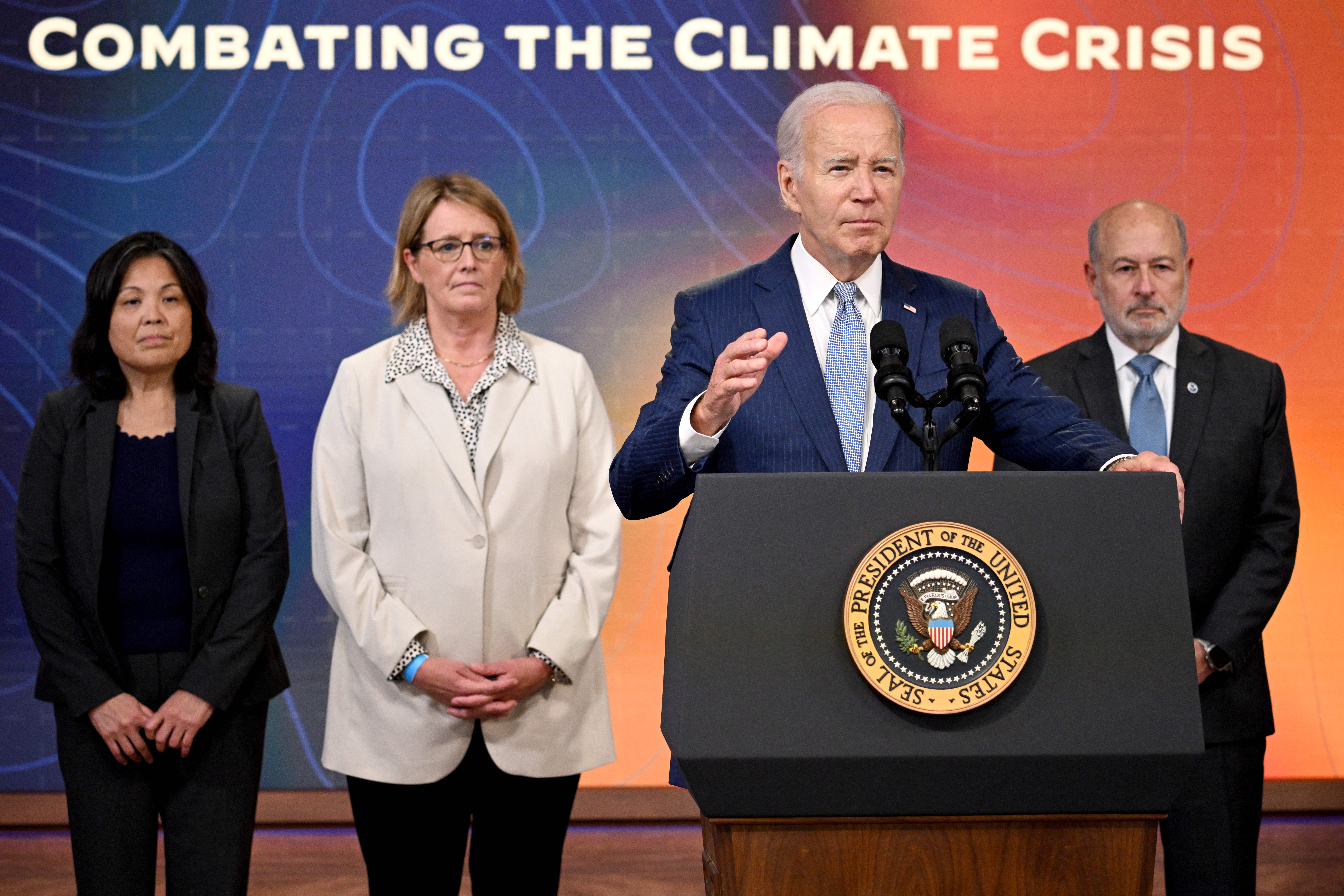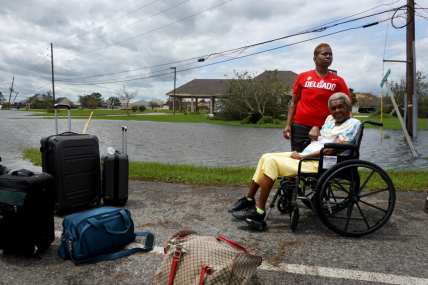Is the Inflation Reduction Act working for Black communities one year later?
The one-year anniversary of the Inflation Reduction Act comes amid frequent natural disasters that have devastated Black and brown communities.
While the White House and experts say the historic investments from the Inflation Reduction Act will significantly benefit Black and brown communities, a year after President Joe Biden signed the $369 billion climate policy into law, the results have been slow, and the law struggles to resonate with the public.
A recent poll shows that most Americans know little to nothing about the IRA and what it does, causing Biden-Harris administration officials to go on a cross-country tour selling the energy and health cost savings and green manufacturing jobs created due to IRA investments.
Those savings and investments will ultimately benefit Black and brown households – and already are – even if they don’t know it yet, the White House says.
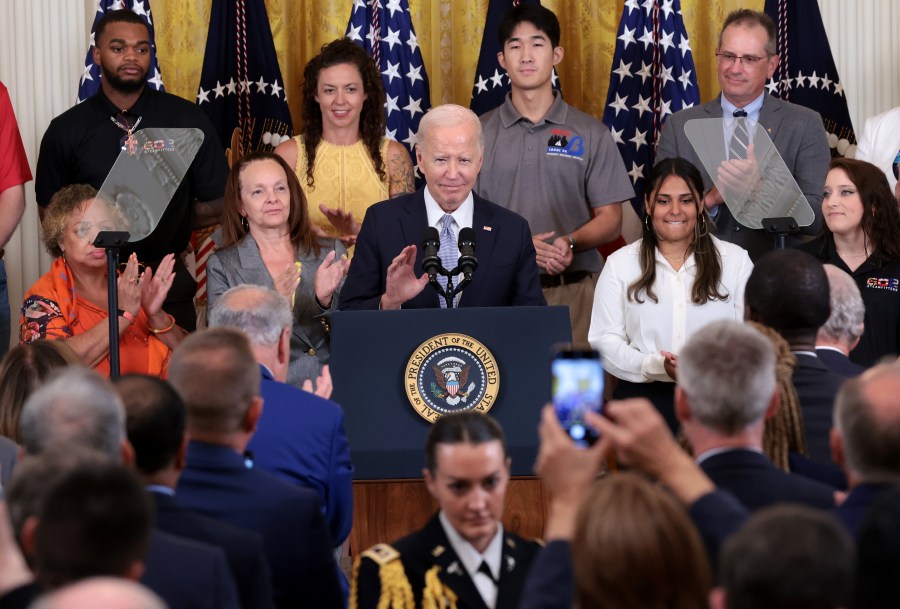
How the IRA is benefiting Black and brown communities
“There’s significant interest in making sure…that we’re reaching those communities,” John Podesta, Biden’s senior adviser on climate, told theGrio during a White House press call.
Citing an analysis report by Climate Power, a climate research and polling firm, Podesta noted that of the 140,000 new clean energy jobs created in the private sector due to IRA tax incentives – including electricians, mechanics, construction workers, technicians, among others – 85,000 of them went to communities of color.
The former counselor to President Barack Obama said the IRA is also reaching Black and brown communities by building rooftop community solar power through the Environmental Protection Agency’s Greenhouse Gas Reduction Fund and creating pre-apprenticeship programs to train for green jobs.
Tax credits and rebate programs to purchase electric vehicles and make clean energy and climate-resilient home upgrades will also reduce costs for households in moderate and low-income communities, noted Podesta.

Georgetown Law professor Sheila Foster told theGrio that the Biden-Harris administration has worked “pretty efficiently” through its federal agencies to “set up some of these programs to get this money out.”
However, she acknowledged challenges for Black and brown communities on the frontline of the climate crisis, like educating them about the tax credits they can use to save money on their energy bills and transform their homes to be more climate resilient. Other obstacles include other “structural problems” like poor housing.
“If they are homeowners, their roof may not be in the kind of condition to be able to put solar on it,” Foster said. She added, “There are all kinds of challenges to effectuating the types of incentives that are directed at the most vulnerable.”
Another one of those challenges includes the fact that many Black and brown Americans may be renters and not homeowners and, therefore, can’t take advantage of most of the tax credits funded by the IRA, Foster noted.
The climate crisis is worsening in Black and brown communities
The one-year anniversary of the Inflation Reduction Act also comes amid frequent natural disasters that have been particularly devastating for Black and brown communities, including the recent deadly wildfires in Maui that have claimed the lives of more than 100 people in Hawai’i.
Earlier this year in Rolling Fork, Mississippi, a predominantly Black city, hundreds of homes and businesses were destroyed by a tornado – an occurrence that has become a chilling norm throughout the U.S. and its territories.
White House officials and experts alike say such disasters are emblematic of why climate policies like those in the IRA are desperately needed.
Sanjay Patnaik, a senior fellow in economic studies at the Brookings Institute, said extreme weather events resulting from climate change are an economic and risk management issue for the United States. The issue is particularly relevant for Black and brown communities where homes in areas may be generally “cheaper” and where wealthier Americans “would not necessarily buy or build houses that are being affected” by the climate crisis.
“Someone has to pay those costs…it’s going to be the private sector with insurance companies…or a taxpayer,” Patnaik, who runs Brookings’ Center on Regulation and Markets, told theGrio. However, he noted that insurance companies are already “pulling out of markets that are getting very expensive to insure” due to frequent natural disasters.
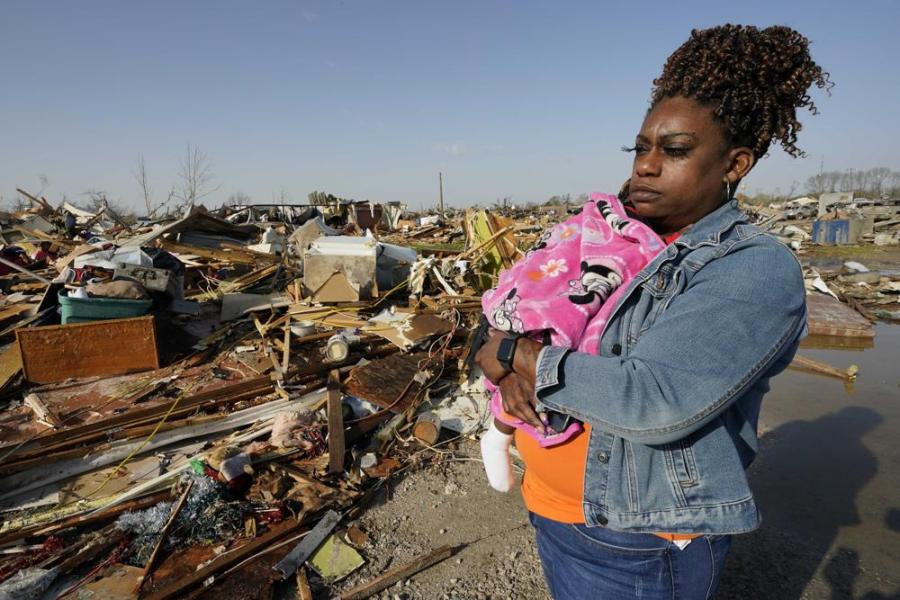
He said the country needs to rethink its risk management, assessing where homes are built and whether to move power plants to avoid weather disruptions to supply and demand.
Activists have told theGrio that while they applaud the historic climate investments of the IRA, the frequent occurrence of natural disasters proves that the climate crisis is at an accelerated level and that more money needs to be invested to protect vulnerable, marginalized communities. They propose as much as $1 trillion a year.
Patnaik cautioned that such an annual price tag is “unrealistic,” explaining the country has to be “pragmatic.” He continued, “We have a lot of other priorities that we need to spend money on as a government. We’re already running a big deficit.”
He said enacting carbon pricing on emissions, which has not been enacted on the federal level, and policies like the IRA’s methane fee, also known as a waste emissions charge, can help address the rising cost of climate change while also meeting the U.S. goal of reducing greenhouse gas emissions by 50–52% by 2030. Patnaik said that doing so would also improve the air quality and protect the health of Black and brown communities.
As private-public partnerships work to build a more climate-resilient and equitable green economy and policymakers mull over ways to do more, Foster of Georgetown said the climate crisis has reached an extreme level, making investments from the IRA more needed than ever.
“We need to act urgently,” she told theGrio. “Some would say it’s too late to completely turn the corner.” She added, “Most people are now recognizing it for what it is.”
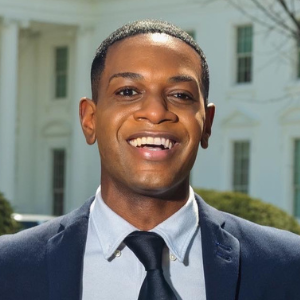
Gerren Keith Gaynor is a White House Correspondent and the Managing Editor of Politics at theGrio. He is based in Washington, D.C.
TheGrio is FREE on your TV via Apple TV, Amazon Fire, Roku, and Android TV. Please download theGrio mobile apps today!
